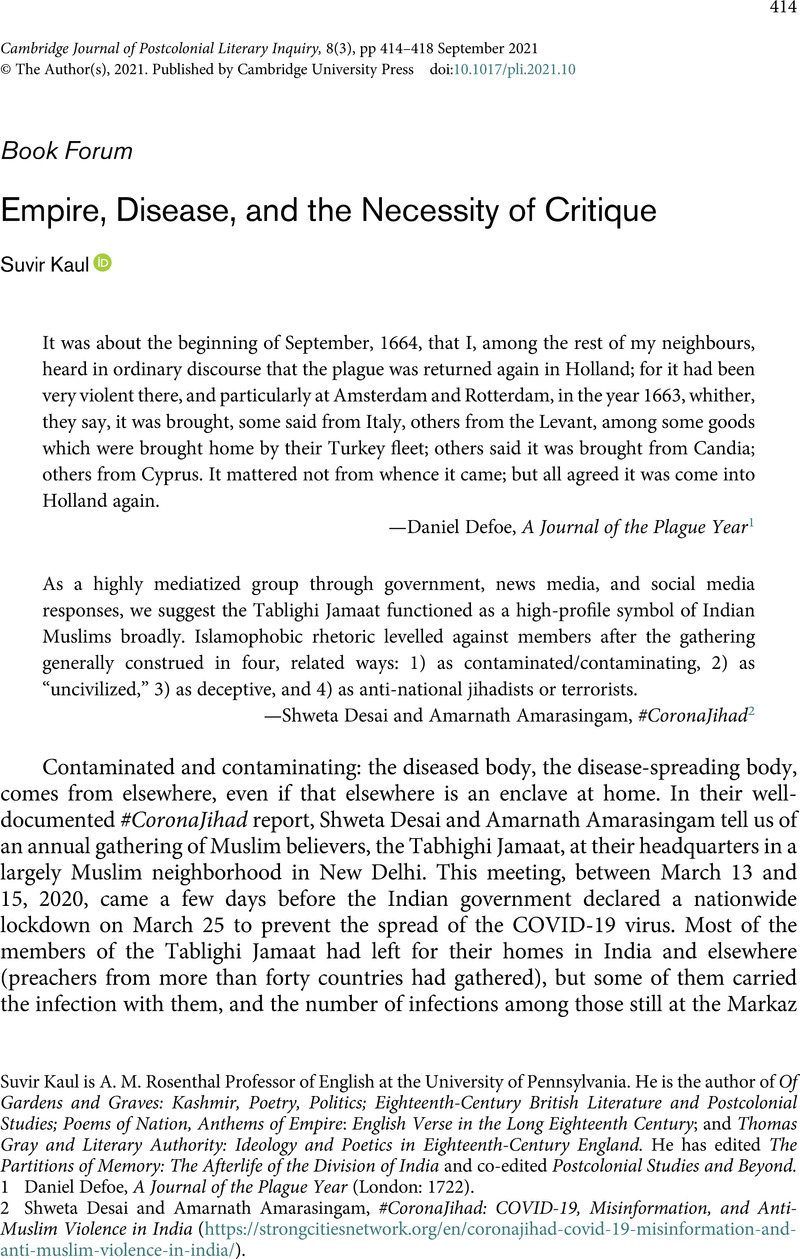No CrossRef data available.
Article contents
Empire, Disease, and the Necessity of Critique
Published online by Cambridge University Press: 11 October 2021
Abstract

- Type
- Book Forum on Anjuli Raza Kolb’s Epidemic Empire: Colonialism, Contagion, and Terror, 1817-2020
- Information
- Cambridge Journal of Postcolonial Literary Inquiry , Volume 8 , Issue 3 , September 2021 , pp. 414 - 418
- Copyright
- © The Author(s), 2021. Published by Cambridge University Press
References
1 Defoe, Daniel, A Journal of the Plague Year (London: 1722).Google Scholar
2 Shweta Desai and Amarnath Amarasingam, #CoronaJihad: COVID-19, Misinformation, and Anti-Muslim Violence in India (https://strongcitiesnetwork.org/en/coronajihad-covid-19-misinformation-and-anti-muslim-violence-in-india/).
3 Kolb, Anjuli Fatima Raza, Epidemic Empire: Colonialism, Contagion, and Terror 1817–2020 (Chicago: Chicago University Press, 2021), xv. All parenthetical folios in this article are further references to this title.Google Scholar
4 The Oxford English Dictionary tells us that Jacobins, “who advocated and practised methods of partisan repression and bloodshed in the propagation of the principles of democracy and equality,” were the first “terrorists.” “terrorist, A.1a.,” OED Online, Oxford University Press, December 2020 (www.oed.com/viewdictionaryentry/Entry/199609).
5 Friedman, Thomas L., The World Is Flat: A Brief History of the Twenty-First Century (New York: Farrar, Straus & Giroux, 2005).Google Scholar
6 Farmer, Paul, Pathologies of Power: Health, Human Rights, and the New War on the Poor (Berkeley: University of California Press, 2005), xxiv (quoted by Kolb, 10).Google Scholar



